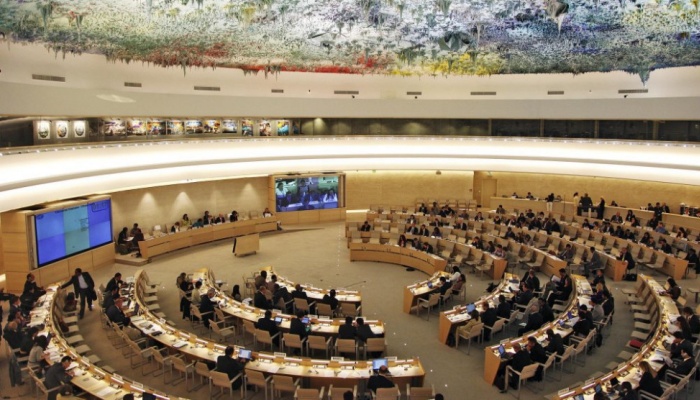More than 10 Western governments urged Turkey to reform its judiciary to ensure its independence and to uphold freedom of expression during the third cycle of the country’s Universal Periodic Review (UPR), which was held on Tuesday at the UN Office in Geneva.
The United States, the United Kingdom, Germany and France were among the countries that made recommendations to Turkey on issues related to the independence of the judiciary and the separation of powers.
The US and Germany, along with several members of the EU, called on Turkey to review and reform its anti-terror laws in favor of freedom of expression and the media.
As many Turkish journalists, civil society leaders and lawyers have been facing terrorism-related prosecutions, the country’s anti-terror legislation has drawn criticism across the international community.
The US, the UK, France and the Netherlands also addressed the country’s Board of Judges and Prosecutors (HSK), recommending that Turkey reform its appointment procedures to protect it against executive influence.
The US and several EU members brought up the pressures on civil society and human rights defenders, calling on Turkey to allow them to operate without fear of prosecution. Luxembourg urged Turkey to end the imprisonment of businessman and civil society leader Osman Kavala, who has been behind bars for more than two years over his alleged role in the countrywide anti-government Gezi protests of June 2013.
Czech Republic, France and Greece asked Turkey to comply with European Court of Human Rights (ECtHR) judgments, presumably referring to Turkey’s refusal to implement a recent ECtHR ruling to release imprisoned individuals including Kavala and Kurdish politician Selahattin Demirtaş, who has been jailed since November 2016.
The US, Czech Republic, Denmark and Sweden called for an end to the Turkish government’s practice of removing elected Kurdish mayors from office and replacing them with pro-government trustees. Sweden urged Turkey to release the Kurdish politicians in jail, to whom it referred to as “arbitrarily arrested.”
Czech Republic, Estonia, Italy and Switzerland urged Turkey to end torture and ill-treatment in custody and to ensure an impartial investigation into allegations of such treatment, which have been on the rise and frequently reported by credible sources over the past few years including Human Rights Watch, the Ankara Bar Association and Nils Melzer, the UN special rapporteur on torture.
In response, the head of the Turkish delegation, Ambassador Faruk Kaymakcı, reiterated Turkey’s “no tolerance for torture” policy.
Kaymakcı also referred to Turkey’s “fight against terrorism,” claiming that the country respected human rights despite the extraordinary circumstances the country has experienced.
Since Turkey’s previous UPR, which was held in January 2015, Turkey has gone through a coup attempt which took place in July 2016 and a two-year-long state of emergency that was put into effect in the wake of the abortive putsch.
Since the attempted coup, Turkish authorities have investigated more than half a million people for alleged links to terrorism, imprisoning nearly 100,000. Several reports condemned the prosecutions as being based on unsubstantiated or absurd evidence.
More than 130,000 public sector workers were summarily sacked. Many rights groups criticized the lack of effective legal remedy for those dismissed from public service.

